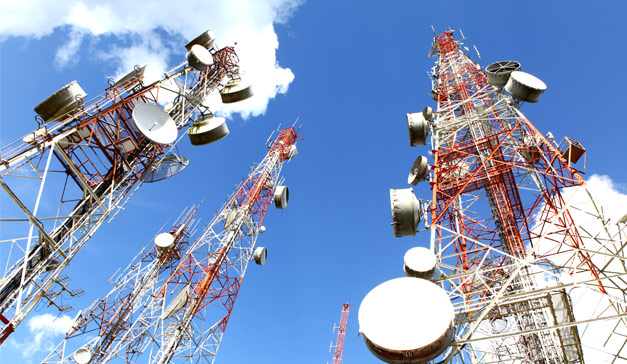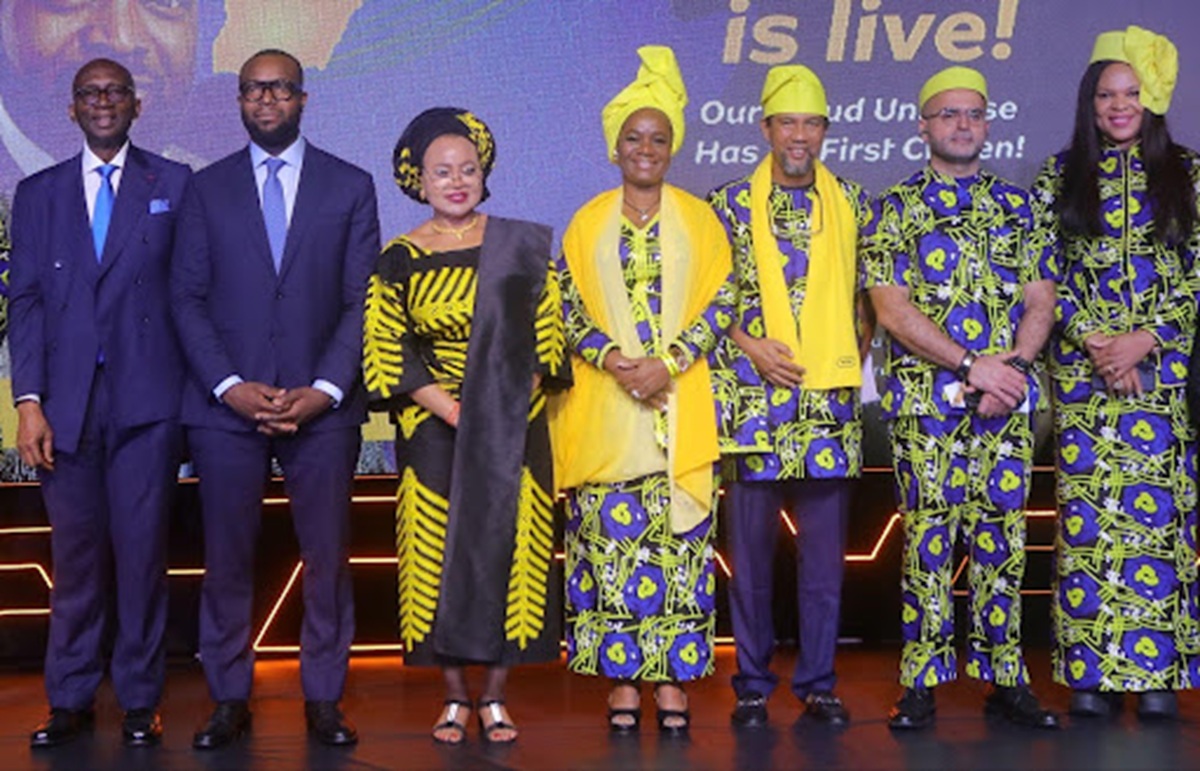Telecom
Telcos, Minister Disagree on Deactivation of Voicemail on Phone Lines

Association of Licensed Telecommunications Operators of Nigeria (ALTON) has reacted to the directive by Dr. isa Pantami, minister of communications and digital economy, to deactivate voicemail on phone lines , insisting that voicemail is opt-in value added service (VAS) only.
ALTON maintained that within the Section 23 and 24 of the Nigerian Communications Act, “this is not a major ‘policy issue’ which must align with consultations to be organized by the Nigerian Communications Commission (NCC).
“It is a mere operational/consumer protection issue which the Ministry can simply call NCC’s attention to,” ALTON insisted amounted to unnecessary interference.
The group which is the umbrella of all licensed mobile network operators, noted that in as much that they want to believe that the Minister was misquoted.
However, ALTON posited that “Voicemail (VM) is a value-added service. Only those who opt-in should have it” stressing that the current practice on some networks is that once subscribers call and the recipient does not pick, “you get a voice prompt saying that the subscriber is not available and asking you to record a voice message *after the tone*”
They further said that for the avoidance of doubt subscribers are not billed anything, but if they delay in either exiting in the event of not wanting the voicemail, “they may be charged for a few seconds, or for the time it takes you to record the message.”
ALTON pointed out that the recipient of the voice mail does not get charged for listening, because “It is free.”
The group explained in a press statement signed by Engr. Gbenga Adebayo, chairman; and Gbolahan Awonuga, head of Operations, said that VM is a value added service and should only be provisioned for those who expressly request for it, recalling that MNOs reintroduced the VM facility to discourage people who “flash” continuously.
“Flashing wastes network resources and also degrades QoS reporting. This should not however justify the practise the way it is being done by some networks” they said.
ALTON, however maintained that, VM is not a major “policy issue” within the meaning of S. 23&24 of the NCA which empowers the Minister to formulate “general policy for the communications sector…” after due consultations organised by the NCC, describing it as a mere operational cum consumer protection issue which the Ministry could simply refer to NCC’s attention.
“It is a purely consumer related issues that minister refers to as a major policy issue and also amounts to unnecessary interference by the Minister contrary to Section 25 subsections 1 & 2 of the Nigerian Communications Act 2003,” ALTON insisted.
Recall that Dr. isa Pantami, minister of communications and digital economy, had directed the Nigerian Communications Commission (NCC) to ensure that telecommunications companies deactivate automatic voicemail subscriptions on phone lines.
In a statement released by Uwa Suleiman, spokesperson to the minister, Pantami said voicemail service should be accessed at the discretion of the subscriber and not by default.
“The attention of the honourable minister of communications and digital economy has been drawn to the latest trend of financial exploitation by mobile network operators (MNOs) in the country through the automatic activation of the voicemail service on their platforms,” the statement read.
“Based on recent reports reaching the office. the practice has gained momentum in recent times.
“The voicemail service should be accessed at the discretion of the subscriber and not by default. The honourable minister finds it worrisome and totally unacceptable, that telecoms subscribers incur financial charges, for a service they are compelled to use by default.”
Explaining the rationale behind the directive, Pantami said voicemail is not a popular service among Nigerians and rural dwellers mostly understand the language used by networks on the service.
“It is apparent, that the recent clampdown on the exploitative activities of some mobile network operators (MNOs) in the country has beamed the searchlight on the sector properly and some unpatriotic elements in the system are devising subtle, ingenious methods of defrauding Nigerians.
“In the light of this. Dr Pantami has issued a broad policy directive to the sector regulator Nigerian Communications Commission (NCC), to immediately ensure that issues regarding automatic voicemails are addressed on all existing phone lines and the subscribers, given the option of accessing the service via an activation code.”
Telecom
Operators Seek Action Over Persistent Vandalization of Telecommunications Infrastructure Across Nigeria

The Association of Licensed Telecommunications Operators of Nigeria (ALTON) has expressed deep concern over the increasing wave of vandalization and theft of telecommunications infrastructure across the country.

According to a statement signed by Engr. Gbenga Adebayo, chairman, ALTON, “since the Federal Government’s decisive interventions earlier this year to support industry sustainability, our members have committed unprecedented levels of investment in network optimization and capacity upgrades. New systems are being deployed, transmission equipment modernized, power systems overhauled, and thousands of kilometers of fiber optic networks currently being laid and expanded.
“Our industry has not seen this scale of investment in recent years. We are working round the clock to improve the quality of service nationwide and we cannot afford these setbacks.
“Unfortunately, between May and July, 2025, multiple incidents of vandalism were recorded across cell sites in Rivers, Ogun, Osun, Imo, Kogi, Ekiti, Lagos, Federal Capital Territory Abuja and many other states.
“These acts of sabotage have significantly disrupted network services, causing widespread connectivity blackouts leading to degradation of services and severely impacting millions of subscribers”.
He noted that, the affected infrastructure, primarily belong to ALTON members, as well as other network operators and those who depend on operators for connectivity.
He said identified critical components targeted to include; power cables, rectifiers, fiber optic cables, feeder cables, diesel generators, batteries, and solar systems are vandalized and stolen from active sites.
“These are not mere materials, but they are the backbone of our digital economy, security systems, and national communications grid.
“We are alarmed at the frequency, intensity, and geographical spread of these incidents. States such as Delta, Rivers, Cross Rivers, Akwa Ibom, Ogun, Ondo, Edo, Lagos, Kogi, FCT, Kaduna, Niger, Osun, Kwara and Federal Capital Territory, Abuja have recorded the highest number of attacks on telecom infrastructure. These attacks have led to prolonged downtimes, network congestion, widespread blackouts, and degradation of service quality.
The public he said, must be reminded that telecommunications infrastructure is classified as Critical National Infrastructure (CNI) under the National Security framework. This classification is backed by Federal Government Gazette No. 133, Volume 108, dated 17th March 2021. Vandalism, sabotage, or illegal possession of these assets is a serious criminal offense with grave consequences.
ALTON expressed concerned about the rising market for stolen telecom equipment, such as:
– Power Cables, Power rectifiers, which are stolen from base station and sold into open markets
– Batteries which are stolen from base stations and sold for home and office inverters.
– Solar panels that are stripped from telecom sites and resold to unsuspecting households.
– Diesel fuel being siphoned from sites and traded on the grey market.
“We urge the public to be vigilant and refrain from purchasing suspicious items. If you buy stolen telecom equipment, you are not just complicit you are part of the crime.
We appeal to every Nigerian to please join us in the fight against the vandalization of telecom infrastructure.
“These assets serve us all, they enable our banking systems, security infrastructure, emergency response, education, health services, and the very platforms that power daily communication. An attack on telecom infrastructure is an attack on our economy and our security.
“A second, recurring and deeply worrying issue is the widespread damage to underground fiber optic cables caused by road construction and related civil infrastructure projects along major highways and urban roads. These activities have led to significant service outages and financial losses,” he added.
ALTON called on: – the Office of the National Security Adviser (ONSA), the Inspector General of Police, the Director General, Department of State Services (DSS), and the Commandant General of the Nigeria Security and Civil Defence Corps (NSCDC)
to immediately deploy the necessary resources to protect telecommunications infrastructure and prevent a total breakdown of communications across the country.
“We commend the Nigerian Communications Commission (NCC) for its proactive efforts in safeguarding national telecom infrastructure, particularly through the creation of a dedicated reporting portal.
“This initiative empowers citizens to play an active role in protecting critical assets by reporting incidents of vandalism or suspicious activity via protect@ncc.gov.ng or by dialing 622.
“Such forward-thinking measures are vital to ensuring the resilience and security of our communications network. This is a desperate and urgent hour. The industry cannot fight this battle alone. We need coordinated national action by the security agencies, the government at all levels, regulators, the media, civil society, and the public. Our national security, economic stability, and digital future depend on it,” the statement noted.
Telecom
MTN’s $150m Data Hub Gets Government Nod for Advancing Digital Economy

At the unveiling of MTN Nigeria’s Dabengwa Data Centre and Cloud Launch in Ikeja, Lagos, recently, Dr. Bosun Tijani, Honourable Minister of Communications, Innovation and Digital Economy, described the facility as an investment aligned with President Bola Tinubu’s agenda to grow Nigeria’s digital economy.

Tijani, who graced the event, commended MTN Nigeria for its continued investment in the country, noting that the new data centre – estimated to cost around $150 million – is the kind of technological infrastructure that supports the $1 trillion economy the current administration aims to build.
“An investment like this, the one we are here to launch, offers a platform for our young people to thrive,” Tijani said. He continued: “Enterprise-grade infrastructure like this, on our soil, gives startups, developers, and digital creators the ability to build and scale from Nigeria to the world. With this facility, MTN is reinforcing its position as Nigeria’s digital backbone.
The data centre, named after the late Sifiso Dabengwa, a former CEO of MTN Nigeria and later Group Chief Operating Officer before his passing in September last year is being hailed as Nigeria’s largest prefabricated modular data centre It will deliver 4.5 MW in phase 1, with an additional 4.5 MW to be delivered in phase 2, which is expected to be completed soon.
According to the Minister, the MTN Data Centre will contribute to growing Nigeria’s economy by “unlocking productivity, hiring enterprise, and driving diversification through technological innovation and inclusion.”
“For this reason, if you don’t mind,” he added, “let’s rise and give a round of applause to MTN for their consistent commitment to Nigeria. The administration of President Bola Tinubu recognises that we cannot build a modern, diversified economy without modern infrastructure – both physical and digital.”
In his welcome address, Karl Toriola, CEO of MTN Nigeria, thanked the Federal Government for its continued support and reiterated the company’s commitment to long-term investment in the country.
“We are committed to building locally managed, globally competitive digital platforms that will enable businesses to scale faster and engage more people in wide-ranging research and development.
“At MTN, we believe everyone, particularly Nigerians and Africans, deserves the benefits of a modern, connected life. We continue to push boundaries to make the humanly impossible, conceivable, feasible, and ultimately possible,” he said.
The unveiling ceremony drew other stakeholders, policymakers, and members of the public sector, all of whom applauded MTN’s bold move, not just as a telecom giant, but as a leader in Nigeria’s tech ecosystem, providing a platform to accelerate digital transformation and innovation.
Dr. Aminu Maida, Executive Vice Chairman and CEO of the Nigerian Communications Commission (NCC), represented by Engr. Babagaba Digima, Deputy Director, New Media and Information Security Department, said: “Today marks a significant milestone in Nigeria’s digital sovereignty and technological independence. The infrastructure we celebrate today embodies our collective vision of a digitally empowered Nigeria.”
Commending MTN’s leadership in digital innovation, Engr. Digima noted, “The Commission remains committed to creating an environment that supports innovation while ensuring the highest standards of cybersecurity, data protection, and robust internet infrastructure. We will continue to work closely with operators to ensure that the deployment of critical infrastructure meets the high standards our digital economy deserves.
Lagos State Governor, Babajide Olusola Sanwo-Olu, represented by Barr. Bimbola Salu-Hundeyin, Secretary to the State Government, said the Dabengwa Sifiso Data Centre “not only signifies MTN’s unwavering commitment to investing in Nigeria’s digital infrastructure but also reinforces the strategic importance of Lagos as a technology and innovation hub for the nation.”
“As we all know, data is the new oil, and cloud technology is the engine that drives it. With its Tier III facilities, MTN is raising the bar for secure, scalable, and efficient enterprise services, critical enablers for businesses, public services, and national as well as multinational corporations alike,” she said.
With its bold investment in infrastructure, MTN Nigeria is not only shaping the future of connectivity but also laying the foundation for a more inclusive and innovation-driven economy, one where Nigerian talent and ideas can thrive on the global stage.
Telecom
Critical Telecom Infrastructure Under Siege as Vandalism and Theft Rise – ALTON

Association of Licensed Telecommunications Operators of Nigeria (ALTON) has decried the alarming rate of vandalism and theft of telecommunications infrastructure across the country.

The association, in a statement issued by its Publicity Secretary, Sir Damian Udeh, expressed deep concern over the increasing wave of sabotage in view of the disruptive impacts on network services, causing widespread connectivity blackouts and impacting millions of subscribers.
According to the group, the affected infrastructure does not totally belong to its members but to other mobile network operators (MNOs) and those who depend on them for connectivity.
It clarified: “Critical components such as power cables, rectifiers, fiber optic cables, diesel generators, batteries, and solar systems are vandalized and stolen from active sites.”
ALTON lamented that these acts of sabotage had led to prolonged downtimes, network congestion, widespread blackouts, and degradation of service quality.
The association listed the states with high frequency and intensity of attacks on telecom infrastructure as including Delta, Rivers, Cross Rivers, Akwa Ibom, Ogun, Ondo, Edo, Lagos, Kogi, FCT, Kaduna, Niger, Osun, Kwara, and Abuja recording the highest number of
It reminded the public that telecommunications infrastructure had been classified as Critical National Infrastructure (CNI) under the National Security framework and that vandalism remained a serious criminal offence with grave consequences for those engaging in the despicable acts.
ALTON, therefore, urged the public to recognize the severity of these incidents and the impact on the digital economy, security systems, national communications grid and the negative implications for national development.
It assured the public of its working tirelessly to improve the quality of service nationwide and called for urgent action by the governments, security agencies and the public to prevent the collapse of the nation’s telecommunications industry.

 News2 days ago
News2 days agoHCSF Describes Galaxy Backbone as a Strategic Partner in Civil Service Digitalization Reforms

 General News2 days ago
General News2 days agoMayor of London Commits to Deepening UK-Nigeria Ties in Tech, Creatives and Trade

 E-Financial2 days ago
E-Financial2 days agoPalmPay Named Among CNBC and Statista’s World Top 300 Fintech Companies 2025

 Telecom1 day ago
Telecom1 day agoOperators Seek Action Over Persistent Vandalization of Telecommunications Infrastructure Across Nigeria

 General News1 day ago
General News1 day agoFirstBank Celebrates ₦1 Trillion Milestone in Instant Loans via AI-Powered Platforms

 E-Financial2 days ago
E-Financial2 days agoFidelity Bank Champions Education in Nasarawa with CSR Project

 Telecom1 day ago
Telecom1 day agoMTN’s $150m Data Hub Gets Government Nod for Advancing Digital Economy

 Telecom1 day ago
Telecom1 day agoCritical Telecom Infrastructure Under Siege as Vandalism and Theft Rise – ALTON




















